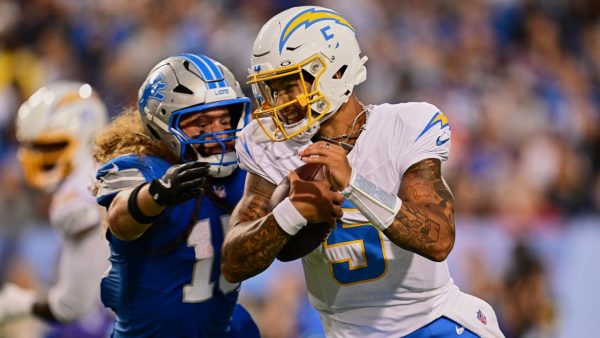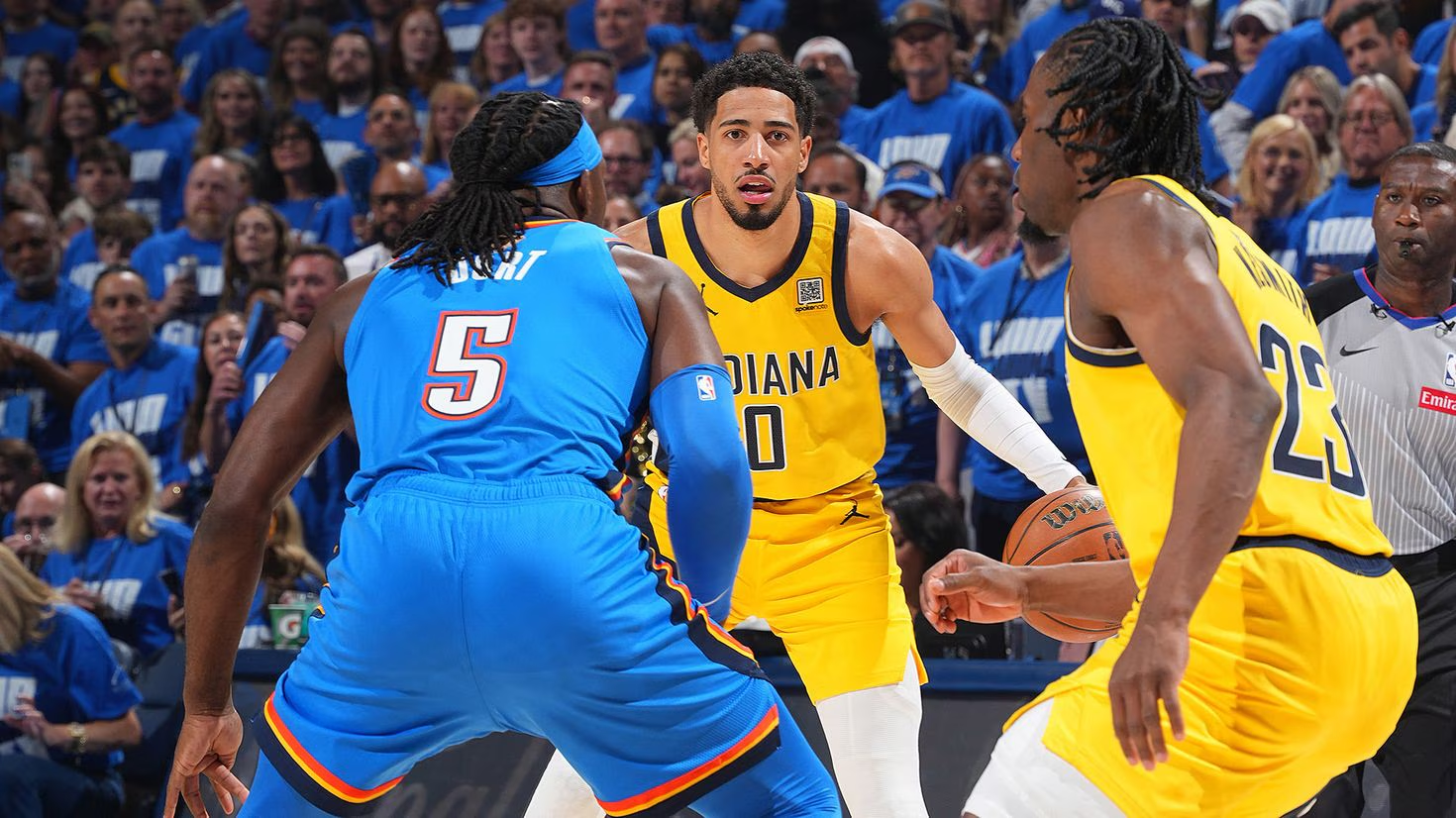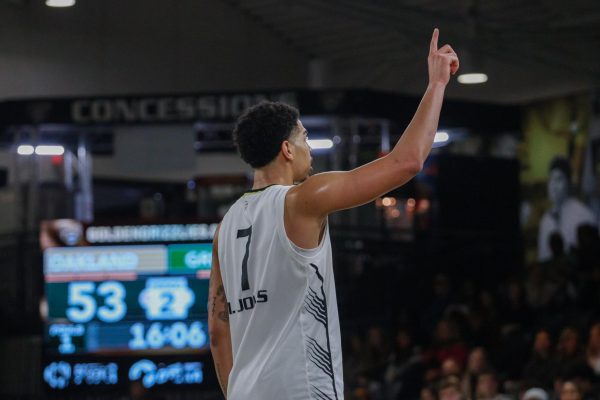Column: Fantasy football has gone from fantasy to reality
Monday nights from September through December are always the most stressful.
On one Monday night in December, the Minnesota Vikings played the New York Giants. The outcome of the game was irrelevant and not one player mattered to me except Ahmad Bradshaw, the embattled Giants running back.
I simply needed him to be held under 80 yards rushing, and for him to not score a touchdown.
I was reduced to rooting against a single running back. This is what happens while playing fantasy football, a game that has reduced me to emotional shambles over the performance of one man, whom I have no control over.
The psychology behind the sports fan has always been puzzling. We live through teams and players that have no connection to us, other than we live in the city spelled out across the team’s jersey. It might be to boost our egos, gain bragging rights, or for financial gain, but we take the competition between others and claim it as our own. In the past it was about the hometown pride, then it was about gambling and now it’s about fantasy sports.
I probably shouldn’t have started to play fantasy sports in the first place. Social pressures caved in on me, and being entrenched amongst some of the most egotistical of the sports egos, I wanted to prove that I can build a better team than they could.
I wanted to show them that I was more savvy then they were when it came to the draft and making trades for the almighty “flex position.”
My journey started when I was forced to auto-draft because, forgive me, I have a life and was camping. Through the heavy criticism of choosing nature over playing virtual general manager, I was blessed with a seemingly unbeatable roster.
My team had Peyton Manning at quarterback, Chris Johnson at running back and the New York Jets defense. My counter-parts cried foul, saying it wasn’t fair because I auto-drafted, but wouldn’t I have taken the top quarterback, running back and defense available, if I had been there in person?
Through the first eight weeks, I stood strong bouncing between second and third place.
Then disaster struck.
I grabbed Deion Branch off waivers when the Patriots traded for him in Week 6. In the games I played Branch, he averaged a little over two fantasy points a game. The other games Branch sat on my fantasy bench, he averaged 15.3 fantasy points a game.
Dez Bryant had a similar output, despite being featured heavily in the Cowboys’ offense all season.
In Week 10, Bryant faced the Giants, who boast one of the top defenses in the NFL. I benched him and he got 17 fantasy points. The next week against one of the worst pass defenses in the Lions, I played him and he only got seven fantasy points. Two weeks later, he fractured his ankle and went on injured reserve for the rest of the season.
That Monday night in December, Bradshaw rushed for a touchdown late in the fourth quarter, to put my fantasy opponent up by two points. All my players were idle. That touchdown by Bradshaw eliminated me from the fantasy playoffs. Appropriately, Bradshaw broke his arm on his next carry.
That is the epitome of the flaws of fantasy football, which is affected so much by injuries and players defying good matchups on paper.
I mean if a player traditionally does well against a team, or is facing a bad defense, you play him.
But all too often logic is defied, he underachieves and now you have your fantasy opponent sending you a text declaring you a fraud. I’m a fraud because Bryant broke his ankle?
We live in a growing virtual world where reality is slipping from us at a fantastic rate. As a society we embrace it, spending all of our time on Facebook and playing war and sports video games so we can kill each other online. Fantasy sports is just another way we disconnect ourselves from reality.
It’s time to get out. Maybe it’s time for all of us to get out.
I say good riddance. This past year of silly frustration over a fantasy game is over.
Think about all the gut-wrenching Monday nights, all the agonizing over possible trades for a tight end, actually cheering against your favorite team, so your fantasy players prosper. It has gotten out of hand.
It is about an individual’s state-of-mind, but there is an assumed state-of-mind for the average person to even play fantasy sports. This is taken seriously. We need to take a step back and realize that this is all about luck, more so about a fantasy which isn’t your reality.





